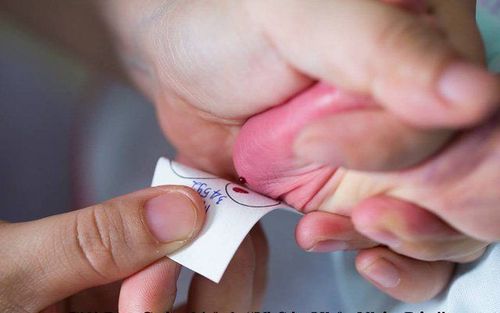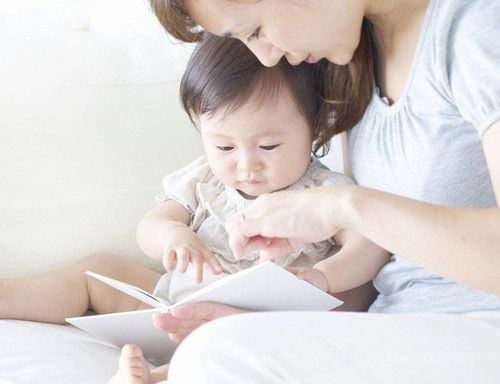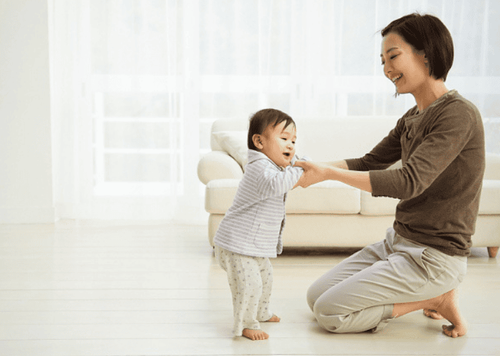This is an automatically translated article.
The article was professionally consulted by Specialist Doctor II Le Thanh Cam - Pediatrician - Department of Pediatrics - Neonatology - Vinmec Danang International General Hospital.The article below will provide you with some important information about the development of a 46-week-old infant as well as some aspects of the development of a 1-year-old infant such as talking, emotions, growth and development. growth, memory and more.
1. The emotional development of the 46-week-old baby
As children become more aware of themselves, you may find that they become more confident in expressing themselves, sometimes become more frustrated when things go as planned, and become more agitated. in happy times.Did you know this actually represents a huge leap in child development? Children's ability to express their emotions more shows that they can better understand their role in the world and how they are different from those around them. Encourage children to continue expressing themselves by:
Accepting their feelings: When children know and understand that their feelings are heard and not dismissed, children become better communicators. Accept the good and the bad: You may find that some emotions are easier to deal with than others. This is important for accepting more negative emotions like frustration, anger, and sadness. Acknowledge these feelings and let your child know that he can cry when you are around. Don't hesitate to express your feelings: Many moms feel the need to hide their feelings of frustration, anger, and sadness. But when we allow our children to see that we also have strong emotions, they can better identify their own emotions.

Khi trẻ nhận thức rõ hơn về bản thân mình, bạn có thể thấy rằng trẻ trở nên tự tin hơn trong việc thể hiện bản thân
2. Quick learning
By this week, your baby's balance is likely to have improved enough that she can stand for a short time without any support. Your child may not take any steps and look a little wobbly from standing still, but once he's confident in his new ability, he'll try the first few steps of his life, then grab the edge of the object. nearest furniture when the child feels he has lost his balance. Soon your baby will start venturing away from walls and furniture, and you can encourage her by standing in the center of the room with a smiling face and open arms (or a favorite toy). ) for the child to step back towards you. Some babies progress from these first unsteady steps to real walking almost overnight, while others have to keep practicing for a month or more. The average age for walking is 12-15 months, but any child between the ages of 9 and 18 months who can walk is still considered normal.Your child understands more than what you say every day and may respond in some nonverbal ways. When you mention a toy, your child may look in the direction or point at the object you talk about; If you ask where the plane is, the child may point to the sky. To help your child learn a few important words and avoid confusion, focus this week on using a single word to describe an object or person around your child. For example, call your cat "kitten" or by the cat's name, but don't call both. Your baby will soon incorporate the words you use into his babbling.
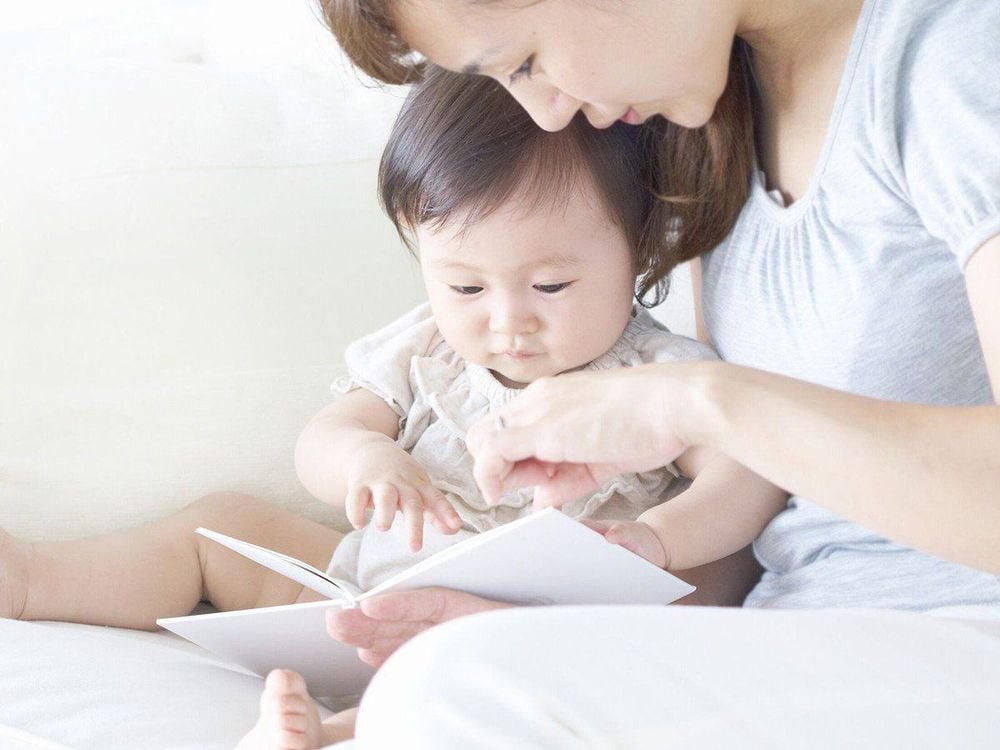
Ở thời điểm 46 tuần, con bạn hiểu nhiều hơn những gì bạn nói mỗi ngày và có thể trả lời theo một số cách không lời
3. Take care of your baby
Even though your baby is older now, he still won't be able to regulate his body temperature as effectively as an adult. If it's hot outside, that means your baby will overheat faster than you. You don't necessarily need to turn on the air conditioner, but make sure your child wears light, airy clothing (cotton is a good choice), breathable shoes, and plenty of fluids. Keep children in the shade as much as possible and, if possible, avoid going outside between 10 a.m. and 2 p.m., when UV rays are at their strongest. If you're feeling hot, your little one is sure to be too, so watch for warning signs that your baby is getting dangerously hot:Fever or hot, flushed skin Heart palpitations Less sweat smelly (meaning the baby's body can no longer cool itself) Irritability Fatigue If it's winter, you also need special care to keep your baby warm. A general rule of thumb is to dress your baby in one more layer than you would wear when out in the cold. And don't forget hats and gloves, as well as warm socks and shoes or boots, because children's extremities are small and will be the first to feel cold. If your baby starts to sweat or the skin turns red, remove a layer or two of clothes.
4. Is it postpartum depression?
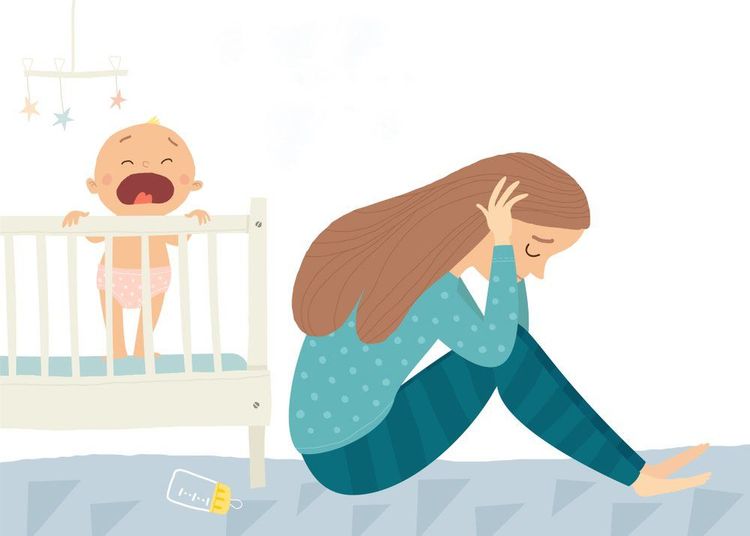
Việc cai sữa cũng đem lại trạng thái buồn chán tương tự như thời điểm sau sinh
Of course, some sadness when babies are weaned is normal. Even when you're ready to stop breastfeeding, it can still feel like the end of the only connection between you and your baby. You may also feel regret that your child is no longer a baby. In just 46 short weeks, your newborn baby has turned into a person who laughs, crawls, talks, and claps as he pleases. Of course, your bond with your child is slightly different now, and this bond will continue to develop as your child grows over time.
Children need to provide enough elemental zinc/day for them to eat well, reach the correct height and weight and exceed the standard. Zinc plays a role in affecting most biological processes taking place in the body, especially the breakdown of nucleic acids, proteins... Organs in the body when zinc deficiency can lead to a There are a number of diseases such as neurological disorders, irritability, etc. Therefore, parents need to learn about the role of zinc and guide them to appropriate zinc supplements for their children.
In addition to zinc, parents also need to supplement their children with other important vitamins and minerals such as lysine, chromium, B vitamins,... errands.
Please regularly visit Vinmec.com website and update useful information to take care of your baby and family.
Reference source: parents.com; mamanatural.com








